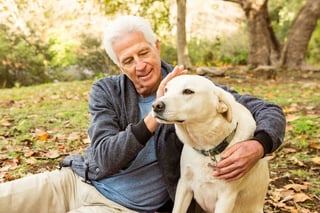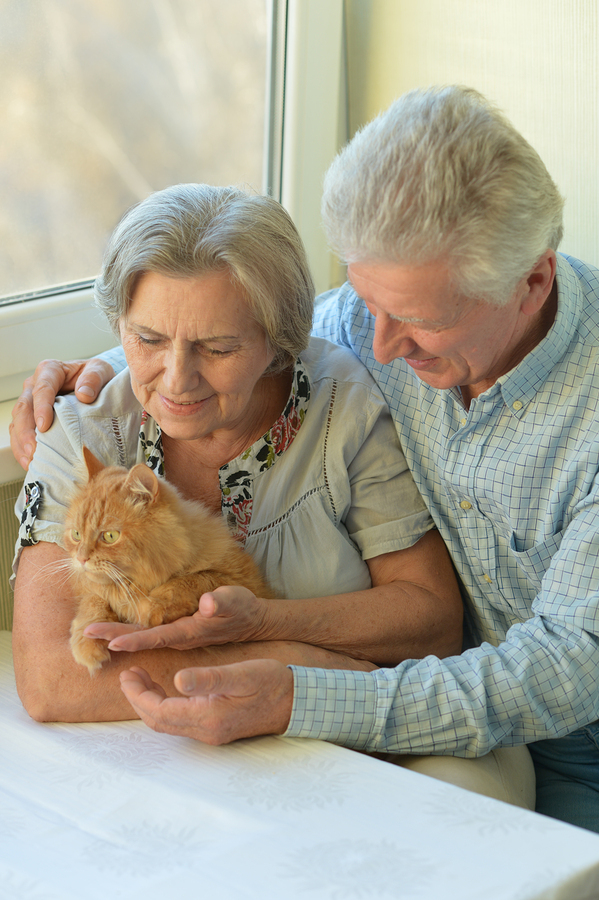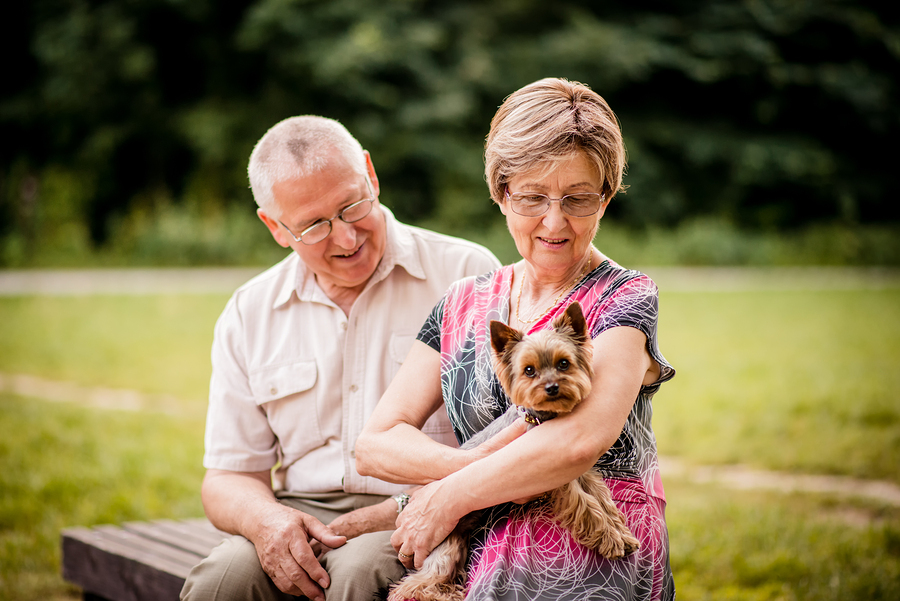From cute and cuddly to friendly and faithful, pets come in all shapes, sizes and personality types. But did you know that pets also offer numerous health and wellness benefits to their owners - particularly in the case of seniors? As it turns out, pet ownership isn't merely good for older people. It can actually be life-changing and, in some cases, life-saving.

A senior's best friend?
The Power of Pets
When we think of seniors and pets, thoughts often turn to companionship, and rightfully so. Pets offer an unbeatable combination of company and unconditional love - a perfect formula for seniors who may be suffering from loneliness and isolation.
In fact, seniors who have pets are even less likely to experience depression -- a common phenomenon among the elderly -- than those who do not due to a link between pets and elevated levels of the "feel good" chemicals, dopamine and serotonin.
But the mental health benefits of having a pet don't end there. Pets can also imbue in seniors an invaluable sense of purpose which might otherwise be missing from their lives. This can positively impact everything from self-confidence to a senior's ability to live independently. The routine of having a pet, meanwhile, can add critical structure to a senior's daily life.

Cats make purr-fect lap pets.
Pet ownership also comes with an abundance of physical health benefits for older adults, including better cardiovascular function and lower blood pressure. Additionally, people with pets typically require fewer hospital visits, take less time to recover following surgery, and even have better survival rates after cardiovascular events.
Picking a Pet for Your Aging Loved One
Not all pets are created equal. In order to find the best pet for seniors, it's important to consider several factors, including their living environments, mental and physical capabilities, and personal preferences.
For example, while a dog might be ideal for a senior with ample room and mobility, a cat might be a better choice for someone living in a small apartment who suffers from physical limitations.
Still not sure whether a dog or a cat is best? Here's one tidbit that might land you firmly in the dog corner: Harvard researchers have determined that dog owners live longer than cat owners. (They suspect that this may be due to the physical exercise involved in dog ownership.)
For less mobile seniors, however, cats offer overlapping benefits without the physical demands. They also require less daily care and training for seniors who may be seeking companionship without a significant amount of responsibilities.

There's nothing like the unconditional love of a canine.
But the list of possible pets doesn't end with dogs and cats. Birds, fish, mice and rats can all add to your aging loved one's life in different yet momentous ways.
Because furry, feathered and finned friends offer so many beautiful benefits, many senior living communities allow residents to have pets.
Meanwhile, caregivers who are worried that a pet may become just one more item on a very long list of responsibilities should take note. Why? Because pet ownership offers stress-reducing benefits for you, too: According to a University California, Davis study of caregivers for people with dementia and Alzheimer's disease, those who who had pets were in significantly better psychological health than those who did not.
mmLearn.org offers a large library of free videos for caregivers of older adults, covering topics pertaining to senior care. Whether you are a healthcare professional or a family caregiver, if you are caring for an older adult we know that you will find mmLearn.org an essential learning and guidance tool for all of your caregiver training needs. Access our free online caregiver videos to gain access to even more tips and tools for caregivers.
